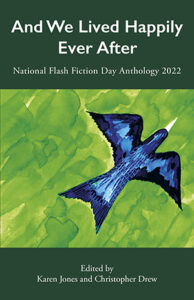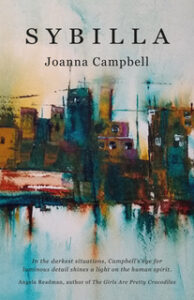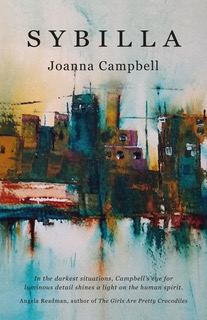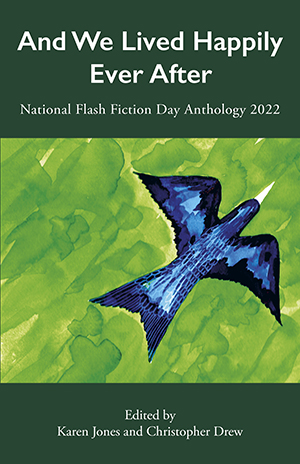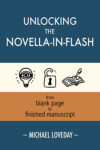 Just in case you weren't busy enough at The Write-In, as part of National Flash Fiction Day 2022, Michael Loveday, author of the craft guide Unlocking the Novella-in-Flash: from Blank Page to Finished Manuscript (Ad Hoc Fiction 2022), has been kind enough to share a three-part writing prompt with us that might help kick-start a novella-in-flash from individual flashes....
Just in case you weren't busy enough at The Write-In, as part of National Flash Fiction Day 2022, Michael Loveday, author of the craft guide Unlocking the Novella-in-Flash: from Blank Page to Finished Manuscript (Ad Hoc Fiction 2022), has been kind enough to share a three-part writing prompt with us that might help kick-start a novella-in-flash from individual flashes....
Scene Afterwards/Scene Beforehand

New sparks can arise when we use one flash fiction as a catalyst for another, and connect them into an extended sequence. As part of National Flash Fiction Day celebrations, why not try the following writing prompt…
PART ONE:
Set aside some time and space to think laterally and imaginatively.
Focus your attention upon one favourite flash that you’ve already written.
(You might like to pick one that you’ve previously submitted to a NFFD anthology, competition, or to Flash Flood; and/or you might pick a flash fiction containing a character or situation that you’re particularly fond of, or curious about.)
PART TWO:
EITHER:
(a) Imagine a moment/an action/an event taking place some time after the scene in the original flash, and write a new flash using the same character(s) as a foundation.
You might set the new scene in the same location or situation, but allow some time to have elapsed in between (it’s up to you how much), so it feels like this new flash is beginning afresh in a new moment.
OR:
(b) Imagine a moment/an action/an event taking place before the original flash. Again, write a scene using the same character(s) as a foundation, maintaining a time gap between the two pieces.
Across the source flash and the newly generated flash, allow the story/situation to move forward. Let one flash develop the ingredients that are in the other. Explore what’s beyond the margins of the source flash.
Depending on whether the new scene is set before or after, consider:
- Where must the character(s) have been previously or inevitably go afterwards?
- Who with?
- Seeing, doing, and experiencing what?
We might say the resulting pair of scenes creates ‘fragmented continuity’.
If you enjoy this tactic, consider using the process again (creating more ‘beforehand’ scenes or more ‘afterwards’ scenes). Do this as many times as feels right for your material.
PART THREE:
Cultivate a list of such scenes you could develop for the story material. Again, explore beyond the margins of the existing material, or follow up any threads (character, setting, plot situation, etc) you glimpse within it.
Could this list of scenes grow into a novella-in-flash?
A novella-in-flash is a short novel composed of individual but linked flash fictions – each section/chapter/story is fewer than 1,000 words long – in which the individual parts build towards a bigger whole.
The story arc for a novella-in-flash tends to be composed of individual moments, presented with spaces and pauses in between, rather than using the unified and continuous narrative arc of a traditional novel or novella.
Allow your chosen story situation to take up room in your creative brain: deliberately welcome in this flash fiction as a resident for a longer period than you’ve allowed before, and begin some daydreaming…
 Michael Loveday writes fiction, poetry, and non-fiction. His hybrid novella Three Men on the Edge (V. Press, 2018) was shortlisted for the 2019 Saboteur Award for Best Novella. In 2018 he began publishing a series of articles about the history and form of the novella-in-flash at SmokeLong Quarterly, and in Spring 2022 his craft guide Unlocking the Novella-in-Flash: from Blank Page to Finished Manuscript was published by Ad Hoc Fiction. He coaches artists, writers, and creative freelancers one-to-one, and edits novella-in-flash manuscripts through his mentoring programme at www.novella-in-flash.com. Find him on Twitter at @pagechatter.
Michael Loveday writes fiction, poetry, and non-fiction. His hybrid novella Three Men on the Edge (V. Press, 2018) was shortlisted for the 2019 Saboteur Award for Best Novella. In 2018 he began publishing a series of articles about the history and form of the novella-in-flash at SmokeLong Quarterly, and in Spring 2022 his craft guide Unlocking the Novella-in-Flash: from Blank Page to Finished Manuscript was published by Ad Hoc Fiction. He coaches artists, writers, and creative freelancers one-to-one, and edits novella-in-flash manuscripts through his mentoring programme at www.novella-in-flash.com. Find him on Twitter at @pagechatter.
Photo by Kyle Glenn on Unsplash.
 Rachel Jendrzejewski is a writer based in Minneapolis. You can find her online at www.rachelka.com
Rachel Jendrzejewski is a writer based in Minneapolis. You can find her online at www.rachelka.com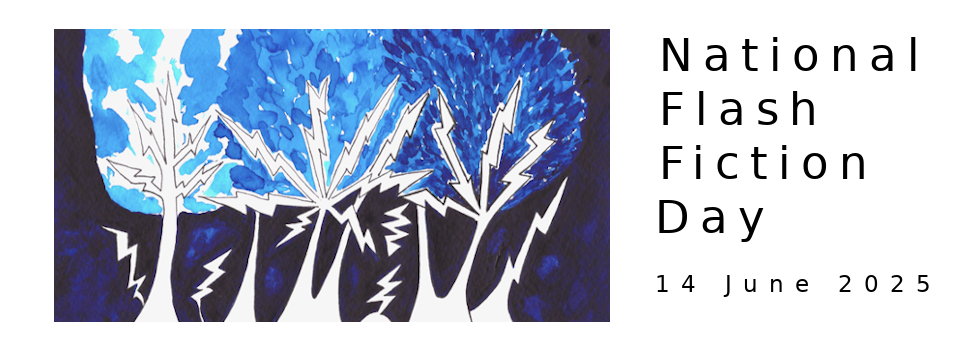
 Just in case you weren't busy enough at
Just in case you weren't busy enough at 
 Michael Loveday writes fiction, poetry, and non-fiction. His hybrid novella
Michael Loveday writes fiction, poetry, and non-fiction. His hybrid novella  Farhana Khalique is a writer, voiceover artist and teacher from London. Her stories are forthcoming or have appeared in the National Flash Fiction Day Anthology 2021, Leicester Writes Short Story Prize Anthology 2020, Reflex Fiction and more. Farhana has been shortlisted for The Asian Writer Short Story Prize, and she has won a Word Factory Apprentice Award. She is also the editor of Desi Reads and a submissions editor at SmokeLong Quarterly. Find Farhana
Farhana Khalique is a writer, voiceover artist and teacher from London. Her stories are forthcoming or have appeared in the National Flash Fiction Day Anthology 2021, Leicester Writes Short Story Prize Anthology 2020, Reflex Fiction and more. Farhana has been shortlisted for The Asian Writer Short Story Prize, and she has won a Word Factory Apprentice Award. She is also the editor of Desi Reads and a submissions editor at SmokeLong Quarterly. Find Farhana  Anita Goveas is British-Asian and based in London. She’s on the editorial team at Flashback Fiction, an editor at Mythic Picnic’s twitter zine, and she’s an editor for the FlashFlood. She is one of the teachers on Dahlia Publishing’s 2021 ‘A Brief Pause‘ writer’s development programme. Her debut flash collection Families and Other Natural Disasters was published by Reflex Press in Sept 2020. Find her at
Anita Goveas is British-Asian and based in London. She’s on the editorial team at Flashback Fiction, an editor at Mythic Picnic’s twitter zine, and she’s an editor for the FlashFlood. She is one of the teachers on Dahlia Publishing’s 2021 ‘A Brief Pause‘ writer’s development programme. Her debut flash collection Families and Other Natural Disasters was published by Reflex Press in Sept 2020. Find her at 